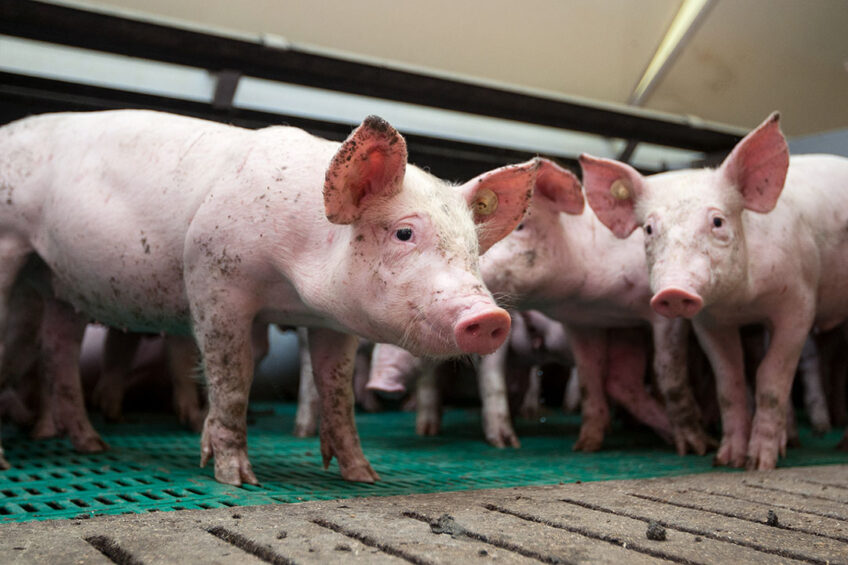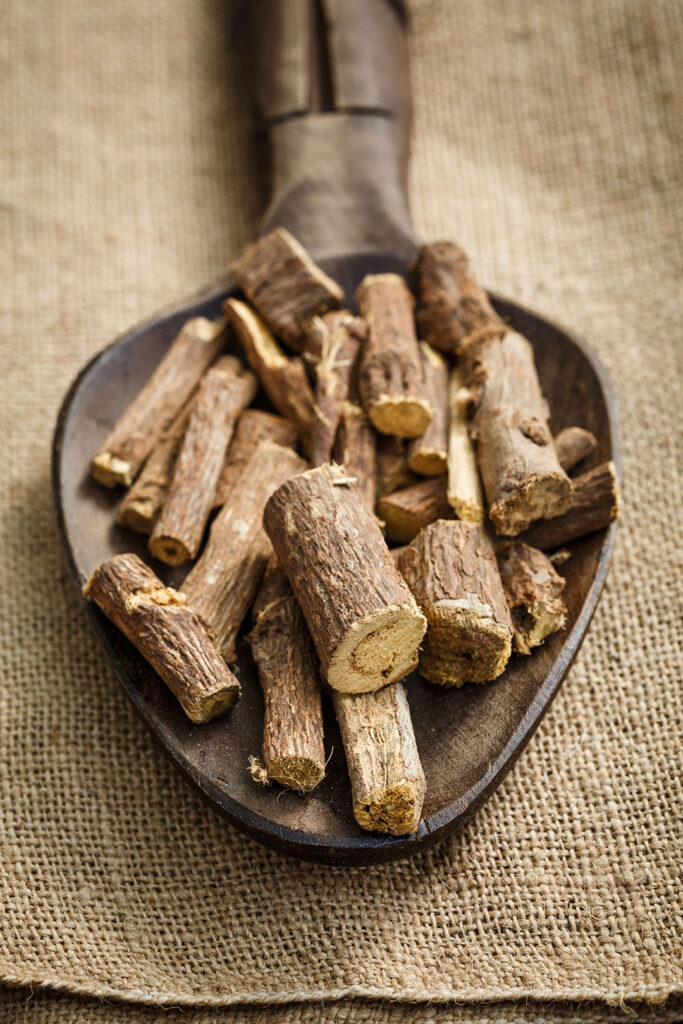Healthy piglets with licorice polysaccharide supplementation

In this recently published study, researchers confirm that licorice (Glycyrrhiza) polysaccharide supplementation enhances the health of weaned piglets by improving immune functions, antioxidant capacity and growth performance.
Weaning is a stressful time for piglets as they must adapt to a new feed, the separation from the sow, and fellow piglets from different litters. The stress disrupts the physiological balance of the piglets, leading to reduced immunity and growth performance. Several studies confirm that plant polysaccharides have antioxidant, antiviral and anti-tumour properties, giving animals enhanced immune system and disease resistance.
Licorice (Glycyrrhiza glabra) is a traditional Chinese medicinal plant. Glycyrrhiza polysaccharide (GCP) is a major active constituent of licorice that is reported to have various bioactive functions such as antioxidant, antitussive, and immunomodulatory effects. Because of these excellent properties, GCP has great potential to relieve weaning stress and improve piglet health. In the current study, researchers determined the beneficial effects of dietary GCP on growth performance, blood parameters and immunity in weaned piglets. The results of this study show how GCP can be a novel feed additive for improving the health of weaned piglets.
The study
To determine the beneficial effects of Glycyrrhiza polysaccharide (GCP), 35‐day‐old healthy weaned piglets were assigned to 4 dietary treatments as follows:
- Control group: basal diet only (no additive),
- Basal diet + 500 mg/kg GCP,
- Basal diet + 1000 mg/kg GCP,
- Basal diet + 2000 mg/kg.
Enhanced immunity

A properly functioning immune system is a decisive factor in maintaining animal health. IgA, IgG, and IgM are the main immunoglobulins in humoral immunity. Determining the relative levels of these immunoglobulins in serum helps evaluate the immunocompetence of the body. In the current study, we found that 1000 and 2000 mg/kg GCP supplementation significantly increased serum IgM levels relative to the control group. Immunoglobulins are secreted by B lymphocytes and previous studies have shown that plant polysaccharides can promote the proliferation of B lymphocytes, thus increasing the secretion of immunoglobulins and enhancing the immune capability of weaned piglets. On the other hand, blood physiological and biochemical indicators can reflect the overall metabolism and health status of the body.
In this study, researchers observed that dietary treatment with GCP: Increased red blood cells (RBC), white blood cells (WBC), and platelet count, with 1000 mg/kg GCP being the most effective dose. The results implied that GCP could enhance the metabolic capabilities of weaned piglets and increase their resistance to microbial infection.
Measuring biochemical indices showed that dietary supplementation with 1000 mg/kg GCP: Significantly increases serum total protein (TP), globulin (GLB), and triglyceride (TG) levels, while both 1000 and 2000 mg/kg improved glucose (GLU) and alkaline phosphatase (ALP) levels in serum.
Based on these results, researchers stated: “The increased ALP activity may be due to the enhancement of bone formation in young pigs to meet the needs of growth, while the increase in serum TP and TG may be attributed to improved digestion and absorption capacity. On the other hand, serum GLB level is associated with anti-stress responses and higher levels are beneficial for combating stress. Taken together, these results can explain the possible causes for GCP’s impact on the growth performance of weaned piglets.”
Antioxidant capacity
Studies show that weaning stress can reduce antioxidant production and increase the level of free radicals in tissues or blood. Antioxidant capacity is positively related to the immune capacity of an animal; therefore, it is important to enhance the antioxidant capacity of weaned piglets to resist weaning stress. The antioxidant enzymes, superoxide dismutase, glutathione peroxidase, and catalase are the major components of the animal antioxidant system, and their activity helps to evaluate the antioxidant capacity of the body. Malondialdehyde (MDA) levels indirectly reflect the degree of cellular damage from a stressor; MDA is a marker of oxidative stress and antioxidant status. This study found that the inclusion of 1000 mg/kg GCP significantly increases the level of antioxidant enzymes while reducing the amount of serum MDA. All the GCP inclusion levels (500, 1000 and 2000 mg/kg) led to higher levels of total antioxidant capacity compared to those in the control birds.
Spleen genes
The spleen is involved in both innate and adaptive immune responses and the degree of immunocompetence can be estimated by the expression profile of inflammatory genes. In this study, researchers measured the relative gene expression of pro-inflammatory cytokines in the spleen; it is important to note that the overexpression of these cytokines means the health is adversely affected. It was found that feeding piglets a diet supplemented with 1000 mg/kg GCP resulted in lower expression of pro‐inflammatory cytokines, indicating an improved immune status of the spleen that promotes the growth performance and health of weaned piglets.
Improved growth performance
The supplementation with GCP resulted in improvements in growth performance for all the inclusion levels (Table 1). Improvement in growth performance was attributed to the prebiotic properties of the polysaccharide that could improve the intestinal environment by increasing the development of the beneficial bacterium and inhibiting bacterial pathogens.
Similarly, the incidence of diarrhoea is closely related to gut health, with a lower incidence considered beneficial for gut health. This study revealed that piglets fed diets containing the Glycyrrhiza polysaccharide had a lower incidence of diarrhoea compared to the unsupplemented diet (Table 1). Hence, one of the possible factors of better growth performance with the GCP treatment group is attributed to less frequent diarrhoea.
Recommended inclusion level
In the current study, researchers confirmed that licorice (Glycyrrhiza) polysaccharide supplementation enhances the health of weaned piglets by improving immune functions and growth performance. Plant polysaccharides have a prebiotic effect that helps improve the intestinal environment by increasing the development of beneficial bacteria and inhibiting bacterial pathogens. It was recommended that diets supplemented with 1000 mg/kg GCP be used as an effective strategy for relieving weaning stress in piglets.











